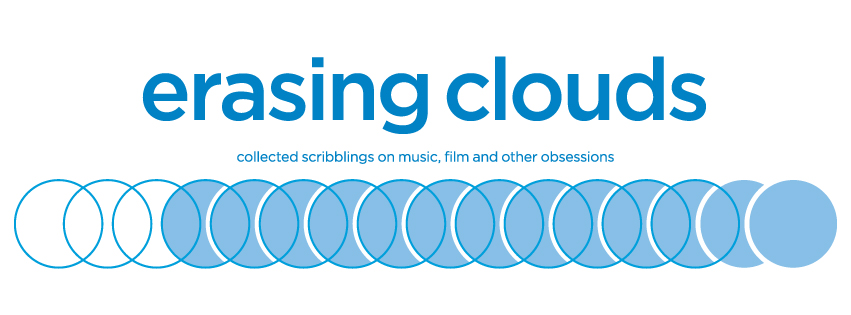The cover of Elks in
Paris declares in large type “Produced by Ken Stringfellow”, giving it
almost equal standing with “Songs by Eric Lichter”. For this Kickstarter-funded
project, they flew to Paris and recorded there. Besides a drummer (Mike Dumas),
the two played all of the instruments. If Stringfellow’s name is on the cover
because of how collaborative the LP is, I understand. But if it’s an attempt to
grab the attention of music buyers with a better-known name – because the Posies
and REM are more famous than the almighty cult favorites the Green Pajamas – it’s
unnecessary. This is a fine collection of songs that can stand on its own.
Sweet, humble songs with power-pop melodies and a thoughtful tone.
The sometimes dreamlike – very, very lightly psychedelic –
mood and the general in-your-head perspective of the songs perhaps does jibe
well with the idea of traveling to another country, but the lyrics most often
look back to Lichter’s home country, to New York City and the Pacific
Northwest. There’s one great quiet
moment where Lichter describes listening to bees buzzing around sugar trees,
contemplating what they’re making for free versus what rich businessmen
produce. “Maybe it’s time to leave our money to the courtesy of trees.”
This is soft music with a general sense of optimism, but, as
that moment shows, there are doubts about the world in here too. The first song
asks, “How can a plan so beautiful / go so pitifully bad?” He’s singing about a
botched crime spree, but as a hook it resonates beyond that story.
Lichter has an almost hushed way of singing that meets the
music at a place of beauty and also helps channel many of the songs’ emotions –
their worry and their sense of wonder. There’s humor, too, or at least
playfulness, in the way the songs look at the world. Like in “Posh”, where he’s
looking at the world around him with the fresh eyes of a child.
On the flipside of that are the moments where those thoughts
in his brain get overwhelming, or where the world itself seems too much, like
on “I Still Insist”, where there’s too many sights, thoughts, wine, time,
dreams. Everything is too much, but still there’s some unifying force behind it
all that he can’t quite get to.
For all the personal thoughts expressed on the album, it
ends with more of an outward turn, as Lichter sings of trying to cross the
lines that exist between people. “Tell me one thing that you think I am”, he
asks, eventually revealing a greater distance between he and the person he’s
questioning that you first thought. It makes you think back and wonder the
extent heartbreak is playing within the album’s distinctly thoughtful, light
but heavy climate.
www.elksinparis.com
www.elksinparis.com




